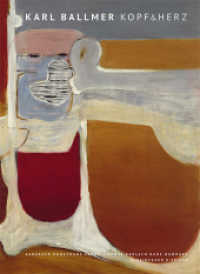Full Description
This book addresses a problem that affects the work of all educators: how traditional methods of assessment undermine the capacity of schools to serve students with diverse cultural and social backgrounds and identities. Anchored in a common-sense notion of validity, this book explains how current K-12 assessment practices are grounded in the language, experiences, and values of the dominant White culture. It presents a timely review of research on bias in classroom and large-scale assessments, as well as research on how students' level of engagement influences their performances. The author recommends practices that can improve the validity of students' assessment performances by minimizing sources of bias, using culturally responsive assessment tools, and adopting strategies likely to increase students' engagement with assessment tasks. This practical resource provides subject-specific approaches for improving the cultural and social relevance of assessment tools and offers guidance for evaluating existing assessment instruments for bias, language complexity, and accessibility issues. Book Features:
Research-based recommendations for improving assessment fairness, validity, and cultural/social relevance.
Practices that have been shown to improve the effectiveness of classroom assessments in supporting student learning.
Concrete examples of how to create culturally relevant assessment tasks that target valued learning goals in language arts, mathematics, social studies, and science classrooms.
Appendixes that provide tools educators can use to improve grading practices.
Contents
Contents
Series Foreword James A. Banks ix
Preface xv
Acknowledgments xix
1. Theoretical Perspectives on Assessment in Diverse Classrooms 1
Diversity in Schools 2
What Is Assessment? 3
Validity Theory and Fair Assessment 3
The State of Classroom Assessment Practices 9
Improving the Validity of Classroom Assessment for Diverse Learners 15
Culturally Responsive Pedagogy and the Validity of Classroom Assessment 16
Communities of Practice and the Validity of Classroom Assessment Practices 18
Where Do We Go From Here? 19
2. Bias and Sensitivity Issues in Classroom Assessment 21
What Is Bias in Assessment? 22
Impact of Teacher Attitudes and Beliefs on Formal and Informal Assessment of Students 24
Bias in Students, Scores on Tests and Other Assignments 29
Strategies for Minimizing Cultural, Racial, Gender, and Language Bias in Large-Scale Tests 31
Potential for Bias in Computer-Administered Tests 44
Potential for Bias in Published Classroom Assessments 45
Minimizing Bias in Classroom Assessments 45
The Role of Community in Reducing Bias in Assessment 50
Conclusion 51
3. Culturally Relevant and Socially Responsive Assessment 52
Culturally Relevant Pedagogy 54
Culturally Responsive Pedagogy 57
Culturally Sustaining Pedagogy 61
Summary of Culturally Relevant, Responsive, and Sustaining Pedagogy 63
Culturally and Socially Responsive Assessment 64
Developing Culturally and Socially Responsive Assessment Tools 70
Culturally and Socially Responsive Assessment: Last Thoughts 81
4. Student Engagement and Assessment 84
Student Engagement: A Review of Research 84
Factors That Improve Engagement of Students 86
Strategies for Increasing Student Engagement During Assessment Events 94
The Challenges of Making Assessment Engaging for All Students 101
5. A Situative Perspective on Assessment in Diverse Classrooms 103
A Situative Perspective 104
Implications of a Situative Perspective on Classroom Assessment Practices 108
Communities of Practice and Culturally Responsive Assessment 112
Summary 117
6. Developing Assessments for Diverse Classrooms 120
Development of Culturally and Socially Responsive Assessment Tools 120
Unpacking Standards for Relevant and Responsive Assessment 124
Models for Culturally and Socially Responsible Reading Assessment 125
Culturally and Socially Relevant Assessment in Social Studies 140
Culturally and Socially Relevant Assessment in the Sciences 145
The Challenge for Culturally and Socially Relevant and Responsive Mathematics Assessment 151
Books by Authors With Diverse Cultural and Social Identities to Support Reading and Social Studies Assessment 167
Concluding Remarks 169
7. Resources and Tools 171
Part 1: Working in Communities of Practice to Examine Published and Teacher-Developed Classroom Assessments 171
Part 2: Resources for Teacher Learning Through Books About Assessment, Culturally Responsive Pedagogy, and Multicultural Education 176
Appendix A: Avoiding Bias in Grading Practices 185
Appendix B: Developing Culturally Relevant Performance Tasks 189
Appendix C: Bias and Sensitivity Reviews 196
Appendix D: Language Complexity Reviews 208
Appendix E: Questions for Accessibility Reviews 219
Appendix F: Academic Verbs Commonly Used in Testing 221
Notes 223
References 229
Index 255
About the Authors 267








